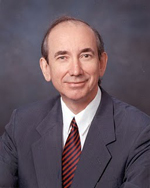Featured Galleries USUBC COLLECTION OF OVER 160 UKRAINE HISTORIC NEWS PHOTOGRAPHS 1918-1997
 Holodomor Posters
Holodomor Posters

FIRST US AMBASSADOR TO UKRAINE RECALLS THE COUNTRY'S EARLY DAYS
By Vlad Lavrov, Kyiv Post, Kyiv, Ukraine, Wed, August 17, 2011
KYIV -- Back in 1991, as Ukraine declared its independence, a lot of people bet that it wouldn’t last long and that the country would once again become a Russian protectorate. At least, this is how Roman Popadiuk, the first US Ambassador to Ukraine, recalls the sentiment of many people around the world, as he was readying to go to Kyiv, where in July 1992 he presented his credentials to Ukraine’s first president, Leonid Kravchuk.
The most ironic thing for him, 20 years on, is that many people still think Ukraine’s independence is not for long. To some this might be a sad conclusion. But not to Popadiuk. He thinks that this is a sign that post-Soviet statehood is much more durable that many people like to imagine. “I would caution everyone from being overly pessimistic about Ukraine’s future,” says Popadiuk. “Ukraine is here to stay.”
Back in Aug. 24, 1991, when the big day came, unlike many of his fellow diasporans, Popadiuk did not celebrate the independence of his parents’ motherland. He was very busy then. The summer months coinciding with the breakup of the Soviet Union were some of the toughest for the senior President George Bush’s press service, where Popadiuk worked at the time.
Besides, Bush’s spokesman on foreign policy admits that Aug. 24 hardly was a surprise to him. “You could feel that things were moving into that direction,” he recalls. “So, on that day there were no parties, but quiet satisfaction and happiness.” Yet, despite all the insight, Popadiuk could not possibly imagine what career shift he would undergo in the coming months. He soon received an offer to become the ambassador to Ukraine.
When this happened, Popadiuk didn’t hesitate, as being an ambassador is “every foreign service officer’s aspiration.” Prior to the posting, Popadiuk’s only visit to Ukraine was in early August 1991, when Bush gave his controversial “Chicken Kyiv” speech to the parliament.
This speech was criticized by some as a warning against Ukraine’s breakup from the Soviet Union, as Bush emphasized his support for Soviet leader Mikhail Gorbachev and warned against “suicidal nationalism.”
Yet, Popadiuk is quick to dismiss all the criticism of his former patron, saying that the historical speech was largely misinterpreted. The president simply meant to warn against the escalation of ethnic conflicts, and not to impede the country’s striving for independence.
As the first US ambassador to Ukraine, Popadiuk faced many challenges -- ranging from bureaucratic issues to geopolitics. US foreign policy to independent Ukraine was a blank page. And Kyiv was a different place. In addition to the scarcity of Western-style restaurants or bar in still-heavily Soviet Kyiv, free time was also in short supply.
As a result, Popadiuk mainly recalls weekly family trips to the downtown Bessarabsky market, the hard-currency stores selling imported food from Germany and toy stores, as the Popadiuks moved to Kyiv with his children.
“We were the essential part of the Ukrainian economy,” jokes the ambassador, recalling those times.
Despite serving in Ukraine for only about a year, Popadiuk is known for his involvement in the negotiations that ultimately led to Ukraine’s surrendering its nuclear weapons arsenal – the world’s third largest – in 1994. Some critics have since criticized this decision by Ukraine as making the country vulnerable, particularly in relations with its domineering Russian neighbor.
Popadiuk, in his turn, dismisses such sentiment. “The Soviet Union had a huge nuclear arsenal and it didn’t help it from falling apart,” Popadiuk reminds. “The country’s strength comes from development of democratic institutions, strong economy and civil society.”
Popadiuk says he can’t help but notice Ukraine’s current problems – such as retreating democracy, which became more obvious with the arrest of former prime minister and opposition leader Yulia Tymoshenko. Rampant corruption is not helping Ukraine’s political and economical breakthrough either.
Yet Popadiuk remains an optimist regarding Ukraine’s future, as the country simply has moved too far in its independence to fail. “Ukraine will be there twenty more years from now,” he says, even though there a chance that some people will still think it’s not for long.
Popadiuk was not only the first US ambassador to Ukraine, but also the shortest-serving. He resigned in 1993, after President Bill Clinton stepped into the White House. Yet for Popadiuk, who currently serves as the executive director of George H.W. Bush Presidential Library Foundation in Texas, the time spent in Ukraine was exciting nevertheless.
Born in a displaced person’s camp in Austria in 1950, the son of parents sent to Germany as forced laborers during World War II, Popadiuk reconnected with lost relatives in Ternopil Oblast. “They heard my name on the radio, and, at first, couldn’t believe it was really me,” he recalls. “Then, they came to the embassy with traditional Ukrainian flowers.”
Not content with spending all of his time in Kyiv, Popadiuk traveled around Ukraine during his year-long tenure. “I spoke to people in Ukrainian and I hoped that, for some of them, to see the US ambassador speaking Ukrainian would reinforce the feeling of national identity,” he says.
NOTE: http://www.kyivpost.com/news/nation/detail/111111/
NOTE: Ambassador Roman Popadiuk serves as a Senior Advisor to the U.S.-Ukraine Business Council (USUBC), Washington, D.C., www.usubc.org.












